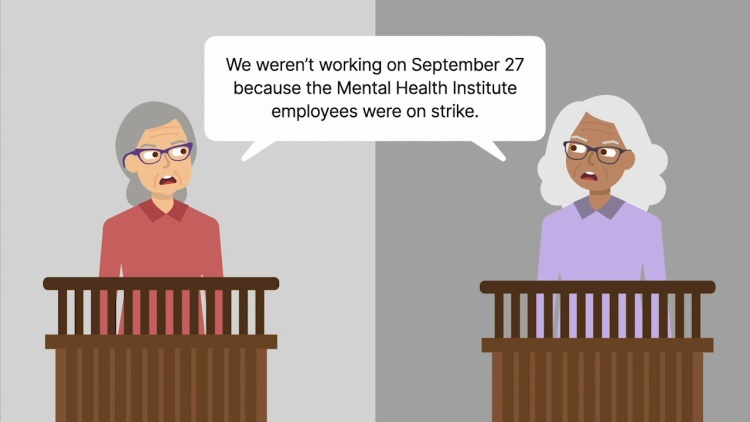State v. Acquisto
Rhode Island Supreme Court
463 A.2d 122 (1983)

- Written by Sean Carroll, JD
Facts
Edward Acquisto (defendant) was charged with a sexual assault that was committed on the morning of September 27, 1979. Acquisto asserted that, at the time of the assault, he was at home with his mother, Julia Griffin. At trial, Griffin and Ann Callahan testified that they had seen Acquisto at home at the time the assault occurred. Griffin and Callahan, who worked as senior companions at the Institute of Mental Health (IMH), testified that they had been unable to go work on September 27 because the IMH employees were on strike on that date. The prosecution called Marie Judge (Marie) as a witness. Marie was the custodian of records for the Department of Elderly Affairs (Department). As the custodian of records, Marie maintained payroll records for IMH senior companions. Marie presented, as evidence, payroll records signed by Griffin and Callahan that indicated they had worked on September 27. The records also indicated that the strike had occurred from September 17 through September 19. The trial court permitted the introduction of the payroll records over Acquisto’s hearsay objection. Acquisto was convicted. Acquisto appealed, arguing that the prosecution had not satisfied the common-law requirement for the introduction of business records, which required the testimony of every individual who participated in creating the record.
Rule of Law
Issue
Holding and Reasoning (Weisberger, J.)
What to do next…
Here's why 899,000 law students have relied on our case briefs:
- Written by law professors and practitioners, not other law students. 47,000 briefs, keyed to 994 casebooks. Top-notch customer support.
- The right amount of information, includes the facts, issues, rule of law, holding and reasoning, and any concurrences and dissents.
- Access in your classes, works on your mobile and tablet. Massive library of related video lessons and high quality multiple-choice questions.
- Easy to use, uniform format for every case brief. Written in plain English, not in legalese. Our briefs summarize and simplify; they don’t just repeat the court’s language.





